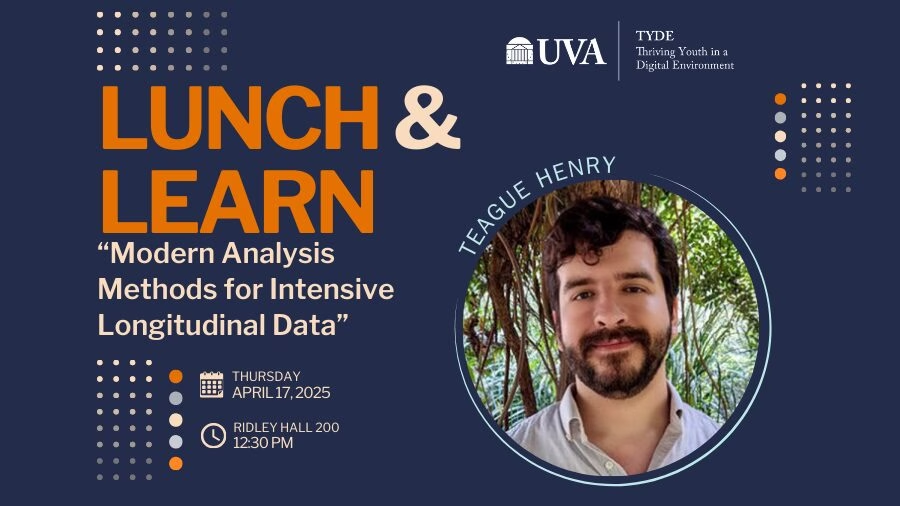Intensive longitudinal data, collected via ecological momentary assessment, daily diary, and passive sensor studies, is increasingly common in mental health research. While this modality of data is capable of capturing fine-grained temporal dynamics of psychological processes, there are a number of methodological and analytical considerations to take into account when fitting models. In this session, Teague Henry (Psychology and School of Data Science) will walk through a number of design and analytic choices for intensive longitudinal studies, and discuss when different modeling techniques should or should not be used.
Lunch will be served.


